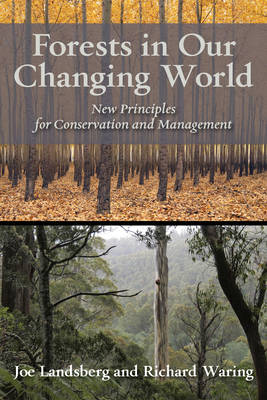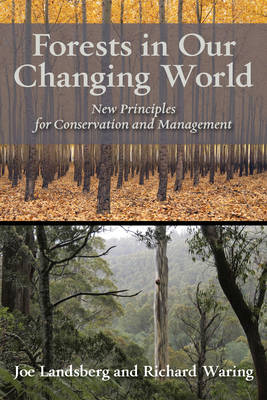
- Retrait gratuit dans votre magasin Club
- 7.000.000 titres dans notre catalogue
- Payer en toute sécurité
- Toujours un magasin près de chez vous
- Retrait gratuit dans votre magasin Club
- 7.000.0000 titres dans notre catalogue
- Payer en toute sécurité
- Toujours un magasin près de chez vous
Forests in Our Changing World
New Principles for Conservation and Management
Joe Landsberg, Richard Waring
Livre broché | Anglais
43,45 €
+ 86 points
Description
As climate change reshapes ecosystems, forests are transforming--some subtly, others with striking speed. These landscapes store carbon, protect water supplies, support wildlife, and play a vital role in stabilizing the planet. But their ability to continue doing so depends on how well we understand their functions and how thoughtfully we manage them. Forests in Our Changing World offers a clear, grounded introduction to how forests work and why they matter more than ever. Drawing on decades of field research and modeling, Joe Landsberg and Richard Waring explain how forests respond to stressors like heat, drought, and land-use change. They outline the key biological and ecological processes that drive forest health, from tree physiology to ecosystem services. The book illustrates how modern tools--like remote sensing and simulation models--are helping forest managers make more informed decisions. By walking through real-world scenarios, the authors show how science can guide planning, whether it's improving timber yields or maintaining ecosystem resilience over time. Written for land managers, policymakers, and anyone interested in the future of forests, this book helps readers make sense of the shifting relationships between trees, climate, and human activity. It's an essential companion for working with, and within, a rapidly changing world.
Spécifications
Parties prenantes
- Auteur(s) :
- Editeur:
Contenu
- Nombre de pages :
- 224
- Langue:
- Anglais
Caractéristiques
- EAN:
- 9781610914963
- Date de parution :
- 01-08-14
- Format:
- Livre broché
- Format numérique:
- Trade paperback (VS)
- Dimensions :
- 150 mm x 226 mm
- Poids :
- 317 g

Les avis
Nous publions uniquement les avis qui respectent les conditions requises. Consultez nos conditions pour les avis.






